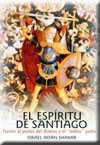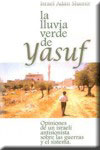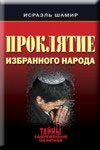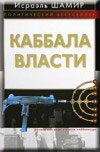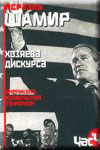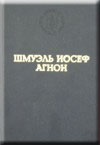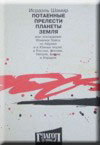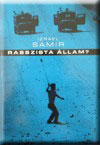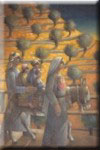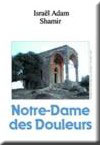Furl the flag
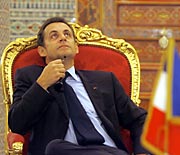
|
| Sarkozy
|
As if his marital challenges were not enough cause for concern, "Sarco the Sayan" has suddenly emerged as the most infamous accolade of French President Nicolas Sarkozy. The influential French daily Le Figaro last week revealed that the French leader once worked for -- and perhaps still does, it hinted -- Israeli intelligence as a sayan (Hebrew for helper), one of the thousands of Jewish citizens of countries other than Israel who cooperate with the katsas (Mossad case-officers) .
A letter dispatched to French police officials late last winter -- long before the presidential election but somehow kept secret -- revealed that Sarkozy was recruited as an Israeli spy. The French police is currently investigating documents concerning Sarkozy's alleged espionage activities on behalf of Mossad, which Le Figaro claims dated as far back as 1983. According to the author of the message, in 1978, Israeli prime minister Menachem Begin ordered the infiltration of the French ruling Gaullist Party, Union pour un Mouvement Populaire. Originally targeted were Patrick Balkany, Patrick Devedjian and Pierre Lellouche. In 1983, they recruited the "young and promising" Sarkozy, the "fourth man".
Ex-Mossad agent Victor Ostrovsky describes how sayanim function in By Way Of Deception: The Making and Unmaking of a Mossad Officer. They are usually reached through relatives in Israel. An Israeli with a relative in France, for instance, might be asked to draft a letter saying the person bearing the letter represents an organisation whose main goal is to help save Jewish people in the Diaspora. Could the French relative help in any way? They perform many different roles. A car sayan, for example, running a rental car agency, could help the Mossad rent a car without having to complete the usual documentation. An apartment sayan would find accommodation without raising suspicions, a bank sayan could fund someone in the middle of the night if needs be, a doctor sayan would treat a bullet wound without reporting it to the police.
And, a political sayan ? It's rather obvious what this could mean. The sayanim are a pool of people at the ready who will keep quiet about their actions out of loyalty to "the cause", a non-risk recruitment system that draws from the millions of Jewish people outside Israel.
Such talk sends chills down spines, especially Arab and Muslim ones. Indeed, the revelation did not go unnoticed in Arab capitals or come as much of a surprise. Paris can be a sunny place for shady people. When it comes to intelligence gathering on behalf of Israel, a question mark is immediately raised on the moral calibre of the person in question. But, how does this scandal influence France's foreign and domestic politics?
It is of symbolic significance that Israeli Prime Minister Ehud Olmert was on a state visit to France in the immediate aftermath of Le Figaro 's exposé -- ostensibly to discuss Iran's nuclear agenda and the Palestinian question. Proud and prickly France under its supposedly savvy new president hopes to play a more prominent role in the perplexing world of Middle Eastern politics. On Monday, Sarkozy flew to Morocco, the ancestral home of many of France's Jewry, soon after his Mossad connection was made public. There is no clear evidence that the revelation is to make France any more unpopular in the Arab world than it already is, especially not in official circles.
On the domestic front, however, there are many conflicting considerations. The Jews of France now display a touch of the vapours, in sharp contrast to the conceited triumphalism with which they greeted his election: "we are persuaded that the new president will continue eradicating anti-Israeli resistance," Sammy Ghozlan, president of the Jewish Community of Paris pontificated soon after Sarkozy's election. France is home to 500,000 Jews, mostly Sephardic Jews originally from North Africa and Mediterranean countries.
Sarkozy's own maternal grandfather Aron Mallah, hailed from Salonika, Greece, and is said to have exercised considerable influence on his grandson. Even though raised as a Roman Catholic, "Sarkozy played a critical role in moving the French government to do what is necessary to address the ill winds that threaten the largest Jewish community in Western Europe," noted David Harris, the executive director of the American Jewish Committee. Sarkozy, after all, was a political product of the predominantly Jewish elite neighbourhood of Neuilly-sur- Seine, where he long served as mayor.
France's Muslim minority was far from surprised by Le Figaro 's revelations, even though some may have feigned disappointment. Others have been more forthright. "France is not run by Frenchmen, but by lackeys of the Zionist International who control the economy," lamented Radio Islam, of militant Islamist tendencies. When Sarkozy was France's minister of interior and clamped down hard on Muslim immigrants, calling mainly Muslim rioters "scum" in a widely-publicised interview, they retaliated by calling him "Sarkozy, sale juif [dirty Jew]". Obviously there is no love lost between the five million-strong French Muslim community, the largest in Western Europe, and the French president. He has grounds for concern. He assiduously courts the Israelis. That much is known.
In the scientific annals of French politics there is a cautionary tale of pantomime. French presidents are not always what they seem. There are, however, two key observations concerning Sarkozy. One, is Sarkozy's intention of implementing a "new social contract" between employers and employees, capital and labour. This smacks of Thatcherism. His determination to force a "cultural revolution" in the collective national psyche is a trifle farcical. And unprincipled to boot. He recently introduced legislation -- in tandem with his pension cuts, calling for genetic profiling of immigrants to ensure any relatives intending to immigrate are linked genetically. The strategy appears to be to soften the blow of the social security cuts by appealing to xenophobic racism.
The state of race relations in France is an even more muddled picture than the devastating caricatures by French-African comedian Dieudonne suggest. He is notorious for playing the part of a Hassidic Jew who mimics the Nazi salute. Few politicians blame their troubles on cynical comedians, though, and Sarkozy is no exception. His fans point accusing fingers at the "irresponsible press".
The real magic starts when you power Sarkozy with his ex-model wife. She, after all, played a part in the freeing of the Bulgarian nurses and a Palestinian medical doctor. She, too, is of Spanish-Jewish ancestry. But, that may be nothing but an insignificant aside. France, generally, regarded their bust-up as something of a bad joke. Unlike the Americans, the French do not take the private lives of their presidents terribly seriously. There was the late François Mitterrand, for example. Hardly anyone in all France raised an eyebrow when it transpired that he had an illegitimate daughter. The French are more concerned with the ideological orientation and political affiliation of their president and are not in the least interested in their private affairs -- at least not in any political sense.
The interesting twist, however, is that the contest between Cecilia and Nicolas Sarkozy is a comic cross between a lover's tiff and the battle of the sexes. It appears befuddled French voters are being forced to turn a blind eye to their leaders' antics. Sarkozy's divorce follows hard on the heels of the separation of France's first female presidential candidate Ségolène Royal, the "gazelle" of French politics, from her lifelong lover François Hollande barely a month after she lost the presidential race in May. Moreover, at the tender age of 19, Royal sued her father for his refusal to divorce her mother and pay alimony and child support. That was way back in 1972; barely a decade later she won the case against her father. Ironically, Royal's own mentor the late French socialist president Mitterrand was notorious for his extra-marital affairs, the most conspicuous being his love affair with Anne Pingeot and subsequent disclosure towards the end of his life that he fathered an illegitimate daughter Mazarine with her.
And, what of the voters? The latest hazard facing the French president has been his socio-economic policies. Sarkozy's showdown with the trade unions threatens to turn into a deciding moment for France. Foreign policy, too, has come under much scrutiny. France has become fanatically Atlanticist under the presidency of Sarkozy. Although, unlike US President George W Bush, Sarkozy does not make much noise about his own dubious religious convictions. The commonest criticism of Sarkozy is that he is overly conscious of his religious heritage, a trait that is not appreciated by the fanatically secular French political establishment. France is culturally the most irreligious country in Europe, itself the most secular and anti-religious of the world's continents.
For a politician acclaimed for his acumen, it is startling that Sarkozy has been tripped up by events he should have seen coming. His sagacity obviously failed him this week. Le Figaro let the cat out of the bag. And his wife, too, after shopping with Lyudmila Putin, the Russian first lady, apparently decided that she had had enough of being treated as "part of the furniture" and made their rift very public.
France is now in the awkward position of having no first lady. The 49 year- old former model, lawyer and political advisor is by no means media shy. "I gave Nicolas 20 years of my life," she told the popular French magazine Elle in a special feature which she asked for personally, despite the awkwardness of its timing. She had long complained of being politically peripheralised. Troubling as that interpretation is, it is in a way a consoling one for Sarkozy. He is now free to handle his opponents without his maverick Cecilia breathing down his neck or, on the contrary, disappearing at crucial moments.
Even with his personal life in tatters, Sarkozy is obliged to hoist the French tricoleur high in the international arena. Which flag is it to be?
--------------------------------------------------
Les étranges accusations d'un cybercorbeau
La PJ enquête sur un courriel envoyé durant la présidentielle à cent hauts responsables de la police. Il affirmait que Sarkozy, comme Balkany, Lellouche, Devedjian et Aeschlimann, étaient liés au Mossad.







